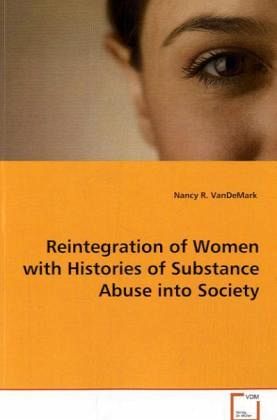
Reintegration of Women with Histories of SubstanceAbuse into Society
Versandkostenfrei!
Versandfertig in 6-10 Tagen
52,99 €
inkl. MwSt.

PAYBACK Punkte
26 °P sammeln!
U.S. policy toward individuals with substance abuseproblems has relied on stigma, discrimination, andpunishment; withholding access to education, cashassistance, housing, social supports, and normalsocial roles. This study investigates therelationship between social supports andparticipatory practices and the propensity of womenwith recent histories of substance abuse to affiliatewith pro-social versus deviant lifestyles. Resultsreveal that higher levels of instrumental support,affective support, and participation in normal rolesare statistically significant predictors of lowerlevels of crimin...
U.S. policy toward individuals with substance abuseproblems has relied on stigma, discrimination, andpunishment; withholding access to education, cashassistance, housing, social supports, and normalsocial roles. This study investigates therelationship between social supports andparticipatory practices and the propensity of womenwith recent histories of substance abuse to affiliatewith pro-social versus deviant lifestyles. Resultsreveal that higher levels of instrumental support,affective support, and participation in normal rolesare statistically significant predictors of lowerlevels of criminal and drug using behaviors and thatwomen perceive social supports and participation innormal roles of parent, employee, student, andcitizen to be critical in facilitating their returnto pro-social lifestyles. The author concludes thatcurrent policies that withhold support and access tofulfill normal societal roles do not increase thepropensity for women to shed deviant identities andin fact may promote affiliation with deviance.












